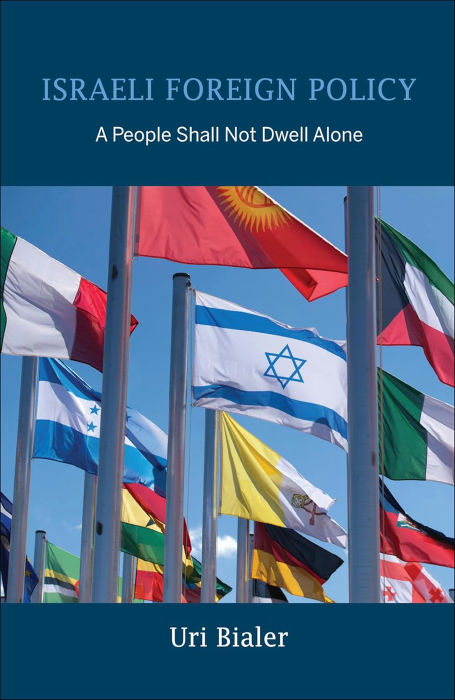Books
Uri Bialer
Israeli Foreign Policy
A People Shall Not Dwell Alone
Uri Bialer’s Israeli Foreign Policy: A People Shall Not Dwell Alone offers a sweeping, deeply researched account of how Israel’s foreign policy emerged, adapted, and survived in a region often hostile to its very existence. Drawing on newly declassified documents and decades of scholarship, Bialer reveals how Israeli leaders—sometimes diplomats, sometimes outsiders—crafted strategies to secure the state’s survival, manage immigration, and break out of international isolation. This book is essential for anyone seeking to understand the motivations, dilemmas, and ingenuity behind one of the world’s most complex foreign policies.
Bialer’s work provides a comprehensive exploration of the origins, objectives, and evolution of Israeli foreign policy from the pre-state era through to the Oslo Accords. The book is structured thematically, covering topics such as the foundational role of diplomacy in facilitating mass immigration after 1948, the persistent quest for vital resources like oil, and the strategic procurement of armaments critical for Israel’s defense. Bialer highlights not only the official state actors but also influential figures without formal diplomatic roles, showing how a mix of pragmatism, audacity, and tactical maneuvering defined Israel’s international posture.
A major theme is Israel’s struggle to overcome political isolation and secure its continued existence in a hostile environment. Bialer details how Israeli leaders navigated complex relationships with superpowers, regional adversaries, and international organizations like the United Nations, often defying external pressures on core issues such as Jerusalem, refugees, and borders.The book also examines Israel’s nuanced approach to the nuclear issue and its delicate balancing act between the Soviet Union and Western powers during the Cold War. Special attention is given to the peace process with Egypt, where Bialer illuminates both the achievements and the enduring barriers to normalization.
While the book’s primary focus is on the formative decades and the Oslo process, some reviewers note that coverage of more recent developments is limited. Nonetheless, Bialer’s sophisticated analysis and command of archival sources make this a highly recommended resource for understanding how Israel’s foreign policy was shaped by existential threats, resource challenges, and the need to navigate a shifting international landscape. For scholars, students, and anyone interested in Middle Eastern politics, Bialer’s work stands as a definitive guide to the statecraft that has defined Israel’s place in the world.

